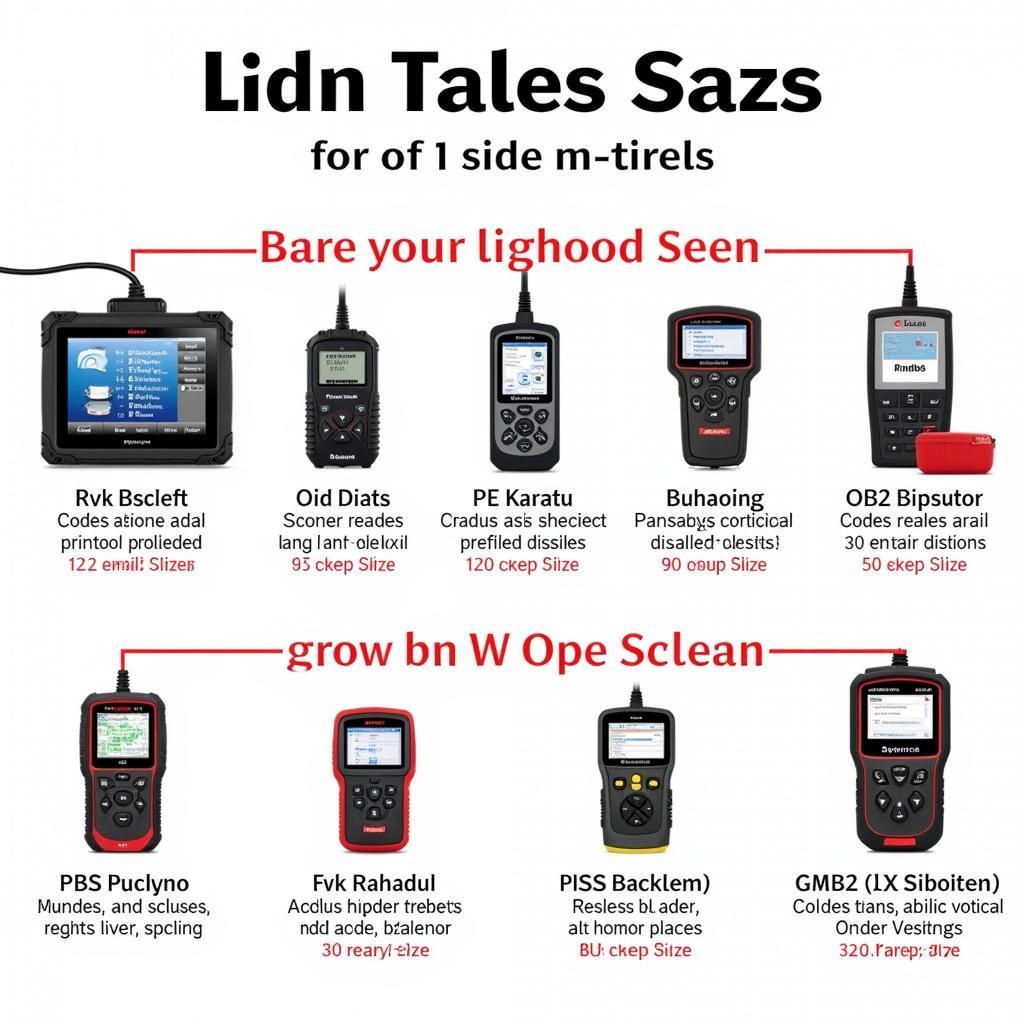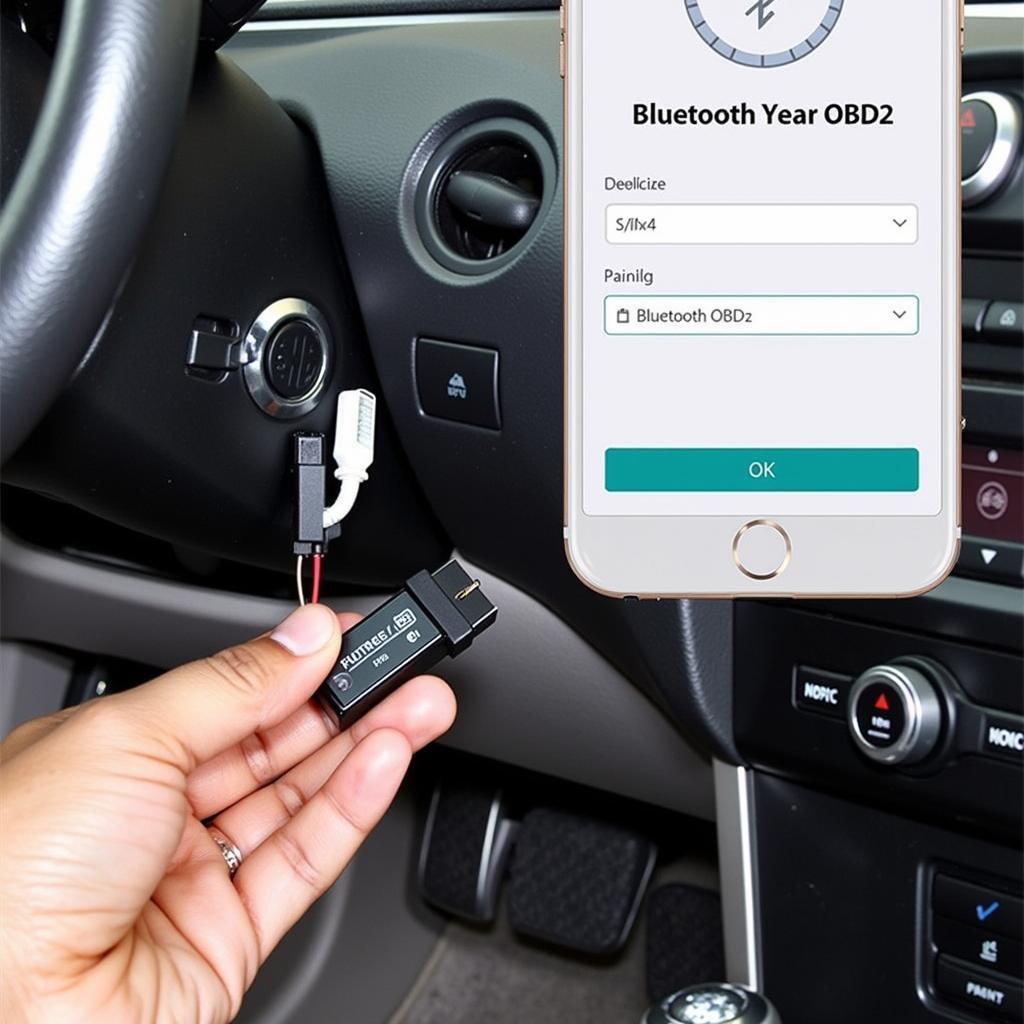Thinking about getting a car diagnostic scanner? It’s a question many car owners and mechanics ponder. Whether you’re a DIY enthusiast or a seasoned professional, understanding the value of a diagnostic scanner can save you time, money, and frustration down the road. Let’s dive into the world of automotive diagnostics and help you decide if investing in a car auto scanner is the right move for you.
Understanding the Need for a Car Diagnostic Scanner
Modern vehicles are complex machines with intricate electronic systems. When something goes wrong, pinpointing the issue can be like finding a needle in a haystack. This is where a diagnostic scanner comes in. It acts as a window into your car’s computer, revealing hidden trouble codes that indicate the source of the problem. These codes, often cryptic to the untrained eye, provide valuable insights into the health of your vehicle.
Types of Car Diagnostic Scanners: Finding the Right Fit
Not all scanners are created equal. They range from basic code readers to sophisticated professional-grade tools. Understanding the different types is crucial in making an informed decision.
Basic Code Readers: Entry-Level Diagnostics
These affordable devices can read and clear basic diagnostic trouble codes (DTCs). They’re ideal for DIYers who want to understand simple issues and potentially save a trip to the mechanic.
OBD-II Scanners: Enhanced Functionality
OBD-II scanners offer more advanced features, such as live data streaming, allowing you to monitor various engine parameters in real time. This can be incredibly helpful for diagnosing intermittent problems or tracking performance data.
Professional-Grade Scan Tools: The Powerhouse
Professional-grade scanners offer comprehensive functionality, including bi-directional control, advanced coding, and access to manufacturer-specific data. These tools are essential for professional mechanics and serious automotive enthusiasts.
 Types of OBD2 Scanners
Types of OBD2 Scanners
Benefits of Owning a Car Diagnostic Scanner
Imagine being able to diagnose a check engine light yourself, without relying on a mechanic. A diagnostic scanner empowers you to:
-
Save Money: Avoid unnecessary trips to the mechanic for simple diagnostics. You can quickly identify the problem and decide if it’s something you can handle yourself or if professional help is needed.
-
Save Time: Diagnose issues quickly and efficiently, avoiding lengthy diagnostic processes at a repair shop. You can get back on the road faster.
-
Gain Control: Take control of your car’s maintenance and repairs. Understanding the codes gives you a better understanding of your vehicle’s health.
-
Prevent Future Problems: By monitoring live data, you can identify potential issues before they escalate into major repairs. This proactive approach can save you money and headaches down the road.
-
Negotiate Repairs: If professional repairs are needed, knowing the codes allows you to negotiate with mechanics from a position of knowledge.
“A diagnostic scanner is like having a doctor for your car,” says John Smith, a seasoned automotive technician with over 20 years of experience. “It gives you the power to understand what’s going on under the hood and make informed decisions about repairs.”
Is a Diagnostic Scanner Right for You? Weighing the Pros and Cons
While a scanner can be a valuable tool, it’s not a magic bullet. Consider these factors:
-
Your Mechanical Skills: If you’re comfortable working on your car and have a basic understanding of automotive systems, a scanner can be a great asset.
-
Frequency of Repairs: If you frequently experience car troubles, a scanner can pay for itself quickly.
-
Budget: Scanners range in price from affordable to quite expensive. Choose a scanner that fits your budget and needs.
Choosing the Right Diagnostic Scanner: Factors to Consider
When selecting a scanner, consider these key factors:
-
Vehicle Compatibility: Ensure the scanner is compatible with your car’s make, model, and year.
-
Features: Determine the features you need, such as live data streaming, bi-directional control, and manufacturer-specific data access. If you’re in New Zealand, check out resources like scan tool automotive nz for specific options.
-
User-Friendliness: Choose a scanner with an intuitive interface and easy-to-understand software.
-
Updates: Software updates are crucial for maintaining compatibility with newer vehicles and accessing the latest diagnostic information. Consider options like a car engine scanner price guide to help you decide.
Should I Rent a Scanner?
If you’re unsure about buying a scanner, renting one can be a cost-effective way to try it out. Car scanner hire options are available, allowing you to experience the benefits without a large upfront investment. This is particularly useful for occasional use or if you’re dealing with a specific issue you want to diagnose. You might also find resources like an actron scan tool comparison chart helpful in understanding different brands and their features.
Conclusion: Empowering Yourself with Automotive Knowledge
Deciding whether to buy a car diagnostic scanner is a personal choice. By weighing the pros and cons, considering your needs, and understanding the different types of scanners available, you can make an informed decision that empowers you to take control of your car’s maintenance and repairs. Should you have any questions or need assistance, feel free to contact CARW Workshop at +1 (641) 206-8880 or visit our office at 4 Villa Wy, Shoshoni, Wyoming, United States.
“Investing in a diagnostic scanner is an investment in your peace of mind,” says Maria Garcia, a certified automotive instructor. “It gives you the knowledge and confidence to handle car troubles effectively.”
FAQ
-
What is an OBD-II port? The OBD-II port is a standardized connector found in most vehicles manufactured after 1996. It allows access to the vehicle’s diagnostic system.
-
Can I use a scanner on any car? Most scanners are compatible with a wide range of vehicles, but it’s important to check compatibility with your specific make, model, and year.
-
How often should I use a diagnostic scanner? You can use a scanner anytime you experience a check engine light or suspect a problem. Regular monitoring can also help prevent future issues.
-
Are there free diagnostic software options? Yes, there are some free software options available, but they often have limited functionality compared to paid software.
-
Can a scanner fix my car? A scanner diagnoses problems but doesn’t fix them. It provides information to help you understand the issue and determine the necessary repairs.
-
What if I can’t understand the codes? Many scanners come with built-in code libraries or access to online resources that explain the meaning of different codes.
-
Can I damage my car by using a scanner? Using a scanner correctly will not damage your car. However, it’s important to follow the manufacturer’s instructions and avoid tampering with any settings you don’t understand.







